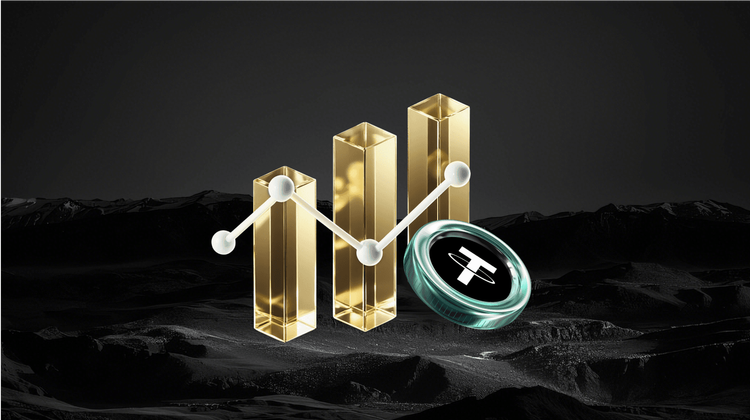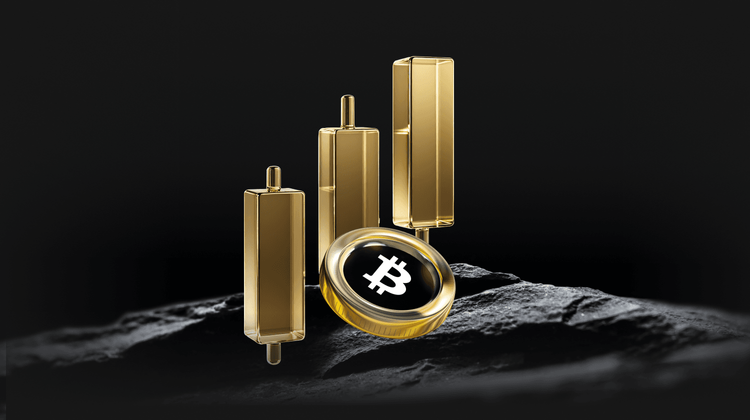Network Congestion
Network congestion occurs when a blockchain network becomes overloaded with transactions, leading to slow processing times and higher transaction fees. Congestion can happen during periods of high demand, such as when a popular decentralized application (dApp) experiences a surge in usage or when a new token sale attracts a large number of participants. When congestion occurs, users often need to pay higher fees (gas fees) to prioritize their transactions for faster processing. Ethereum, for example, has faced significant congestion issues due to its limited scalability, prompting the development of Layer-2 solutions like Optimism and zk-Rollups.
También te puede gustar

¿Es seguro usar TradFi en 2026? Is TradFi safe to use?
A principios de 2026, con el lanzamiento de contratos perpetuos como TSLAUSDT en plataformas como Binance el 28…

¿Cuál es la diferencia entre TradeFi y DeFi en 2026? What is the difference between TradeFi and DeFi?
En el dinámico mundo de las finanzas digitales de 2026, términos como TradeFi y DeFi han ganado protagonismo,…

Descubrí What is TradeFi, 2026: La Revolución en el Crypto que Fusiona Finanzas Tradicionales
En 2026, el mundo del crypto sigue evolucionando a pasos agigantados, y un concepto que está ganando terreno…

## La convergencia entre crypto y TradeFi: cómo los contratos de Tesla y los RWA están cerrando la brecha
A fines de enero de 2026, Binance lanzó el contrato perpetuo TSLAUSDT, un hito que une el mundo…

¿Qué es BankrWallet (BNKRW) Coin?
Cryptocurrency enthusiasts and investors will be excited to learn about the latest listing on WEEX Exchange. From February…

BNKRW USDT Debuta en Estreno Exclusivo en WEEX con BankrWallet (BNKRW) Coin
WEEX Exchange anuncia con entusiasmo el estreno exclusivo de BankrWallet (BNKRW) Coin, una billetera de navegador innovadora que…

¿Qué es Felix Craft (FELIX) Coin?
Felix Craft (FELIX) has made its debut on the WEEX exchange, offering crypto enthusiasts a chance to explore…

FELIX/USDT Debuta en WEEX con Estreno Exclusivo de FELIX Coin
¡Gran noticia para la comunidad crypto! WEEX Exchange anuncia el listado exclusivo de FELIX (FELIX) Coin, un token…

¿Is XAUt a stable coin? Explorando si Tether Gold es realmente una stablecoin segura y estable
En el mundo de las criptomonedas, donde la volatilidad reina, muchos inversores buscan opciones que ofrezcan estabilidad. Is…

¿Es Is XAUT Safe, Tether Gold una Opción Segura para Invertir en Oro Digital?
En el mundo de las criptomonedas, Tether Gold (XAUT) ha ganado atención como una forma innovadora de invertir…

¿Is XAUT backed by Gold? Descubrí si esta stablecoin está realmente respaldada por oro real
En el mundo de las criptomonedas, donde la volatilidad es la norma, muchos inversores buscan activos estables que…

Predicción de Precio de BankrWallet (BNKRW) Coin: ¿Rebote del 50% Tras Lanzamiento en Febrero 2026 – Alcanzará $0.10 Pronto?
BankrWallet (BNKRW) Coin acaba de debutar en el mercado con su listado en WEEX hoy, 11 de febrero…

Predicción de Precio de FELIX Coin: ¿Subirá un 50% en Febrero 2026 y Alcanzará $0.10 Próximamente?
[Consulta los datos detallados de FELIX Coin](https://gmgn.ai/base/token/0xf30bf00edd0c22db54c9274b90d2a4c21fc09b07) FELIX Coin acaba de debutar en el exchange WEEX con el…

¿WEEX requiere KYC? Guía completa
KYC no es obligatorio en WEEX Exchange, lo que brinda a los traders flexibilidad para comenzar a operar de inmediato mientras eligen cuándo completar la verificación completa. Este enfoque equilibra la accesibilidad con la seguridad, permitiendo a los usuarios mantener la privacidad mientras ofrecen beneficios significativos para aquellos que verifican su identidad.

KPI/USDT Llega a WEEX: Lista Kumbaya Pump Initiative (KPI) Coin
WEEX Exchange anuncia con entusiasmo el listado de KPI/USDT, permitiendo el trading spot de Kumbaya Pump Initiative (KPI)…

¿Qué es el Kumbaya Pump Initiative (KPI) Coin?
Kumbaya Pump Initiative (KPI) has recently captured the spotlight as a newly listed token pair on WEEX. As…

Predicción de Precio de Kumbaya Pump Initiative (KPI) Coin: ¿Subirá un 25% en Febrero 2026? Pronóstico hasta 2030
En las últimas 24 horas, Kumbaya Pump Initiative (KPI) Coin ha mostrado un aumento del 15% en su…

Cómo comprar criptografía en WEEX Exchange 2026: Guía completa
Aprende a comprar cifrado en WEEX Exchange con nuestra guía 2026. Compra Bitcoin al instante con tarifas bajas, seguro 2FA y seguro de $200 millones. Tutorial paso a paso para principiantes. Disponible en más de 150 países. ¡Empieza hoy!
¿Es seguro usar TradFi en 2026? Is TradFi safe to use?
A principios de 2026, con el lanzamiento de contratos perpetuos como TSLAUSDT en plataformas como Binance el 28…
¿Cuál es la diferencia entre TradeFi y DeFi en 2026? What is the difference between TradeFi and DeFi?
En el dinámico mundo de las finanzas digitales de 2026, términos como TradeFi y DeFi han ganado protagonismo,…
Descubrí What is TradeFi, 2026: La Revolución en el Crypto que Fusiona Finanzas Tradicionales
En 2026, el mundo del crypto sigue evolucionando a pasos agigantados, y un concepto que está ganando terreno…
## La convergencia entre crypto y TradeFi: cómo los contratos de Tesla y los RWA están cerrando la brecha
A fines de enero de 2026, Binance lanzó el contrato perpetuo TSLAUSDT, un hito que une el mundo…
¿Qué es BankrWallet (BNKRW) Coin?
Cryptocurrency enthusiasts and investors will be excited to learn about the latest listing on WEEX Exchange. From February…
BNKRW USDT Debuta en Estreno Exclusivo en WEEX con BankrWallet (BNKRW) Coin
WEEX Exchange anuncia con entusiasmo el estreno exclusivo de BankrWallet (BNKRW) Coin, una billetera de navegador innovadora que…
